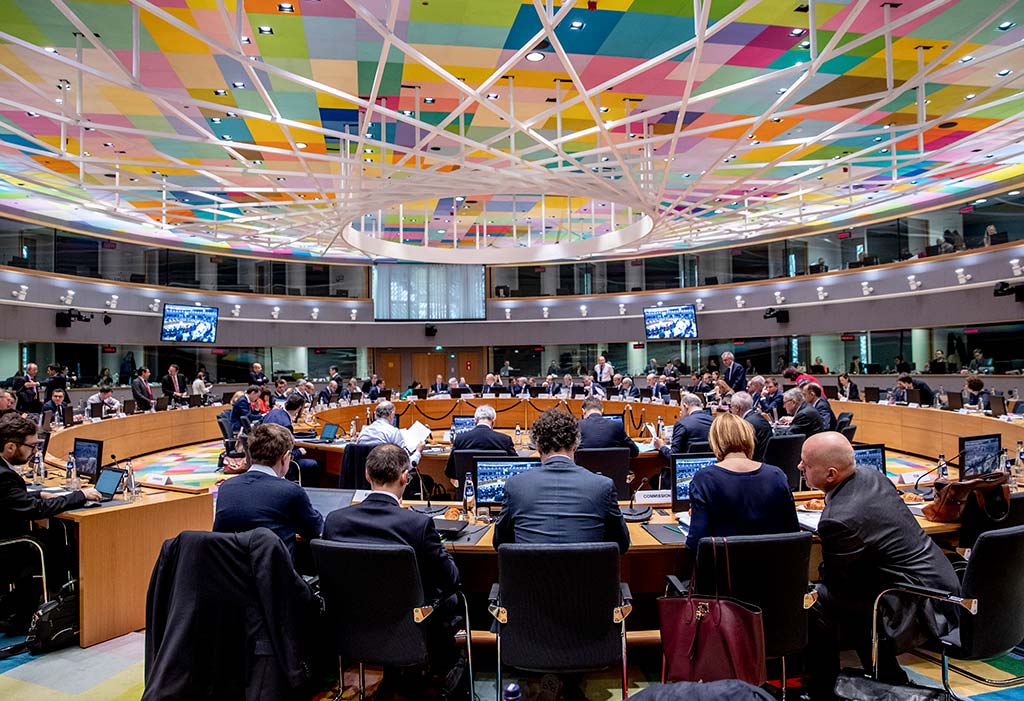
On 12 March, the ECOFIN failed to approve the Commission proposal for a Directive laying down rules relating to the corporate taxation of a significant digital presence. Denmark, Finland, Ireland and Sweden blocked the adoption of a proposal supported, inter alia, by France, Germany, Italy and Spain.
Shielded behind unanimity and a distribution protective distribution of competences, fiscal policy stands as the last standing bastion for national sovereignty within the European Union (EU). The protection and promotion of “preferred forms of life” justifies safeguarding national tax sovereignty. I argue though that this conception has produced some deeply unfair and illegitimate effects in the integrated EU market and the euro zone: some governments have free ride on their neighbours limiting their fiscal capacities and this impacts negatively in their budgetary appropriations.
The integrated EU market has provided a wonderful environment for exploiting opportunities for revenue that go beyond those arisen in the domestic market. In early stages of the single market, the dominant issue was whether multinationals operating in several jurisdictions should tribute in the home base or in those member states in which they exercised their activities. The European Court of Justice (ECJ) settled the case in favour of the first option in Marks and Spencer ruling back in the early 2000s. Although this did not trigger a race to the bottom in which states with the lower corporate rate seek to attract huge revenue earning corporations, it clearly signalled the future tendency.
The technological revolution and growth of the digital economy have raised the challenge to a new height: business can operate via digital platforms anywhere in the EU. Member states in which these corporate seats are established may raise billions of euros as result of their activities that will exclusively be taxed at the home member states. Given these conditions, certain states have developed sophisticated forms of “aggressive tax planning” (ATP) whose main purpose is to attract companies operating in other member states and/or in the EU single market via fiscal instruments that significantly diminished the taxes payed.
In 2018, the Commission’s European Semester Country report identified 7 member states (Belgium, Cyprus, Hungary, Ireland, Luxembourg, Malta and the Netherlands) that practiced “aggressive tax planning”. All but Hungary are euro members. Gibraltar and the UK’s Channel Islands, as well as the Isle of Mann could be probably added to the list. According to the Commission, revenue loss through profit shifting within the EU (i.e. reporting earnings from economic activity in the whole of the Union in one tax-advantageous member state) could be around €50-70 billions.
Some member states have been particularly active in creating the so-called “Base erosion and profit shifting” (BEPS) corporate tax tools. The most well-known one is the so-called Irish double that the Commission prosecuted. In 2016, the Commission found that Ireland had used “sweetheart deals” with Apple that permitted this company to pay an effective corporate tax rate of 0.005%. The Commission ordered Ireland to recuperate some €13 billion but the Irish government resisted. Pressed by EU authorities, the Irish government set to close the Irish double by 2020 but Ireland quickly substituted the Irish double by another BEPS: the single malt (a scheme that operated via a bilateral tax treaty with Malta) and the Capital Allowances for Intangible Assets (CAIA). Ireland has also opted out of Article 12 of the 2016 OECD anti-BEPS initiative to protect the single malt. The Netherlands has also creatively developed its own BEPS, the Dutch sandwich that works in conjunction with the Irish double. The Commission has not taken specific action against the Netherlands, tough. Luxembourg has also used imaginative fiscal BEPS and, in October 2017, the Commission concluded that Luxembourg gave illegal tax benefits to Amazon worth around €250 million.
Why does this happen? For smaller jurisdictions, a large market in which other member states provide an enlarged base for consumption represents a temptation to free ride on taxation. For a small tax jurisdiction, the absolute volume of taxes captured via ATP represents an absolute gain. Even with very low taxes, revenue is much larger than failing to attract these corporations. The effects of such behaviour are self-evident: they stimulate free riding, they unfairly diminish the capacity of other member states to collect revenue and this, lately affect, to the expenditure side of the budget. In an integrated euro area, stringent conditions are attached to public deficit and eroding national fiscal capacities creates an illegitimate source of restrictions. Some governments have consciously and purposively ATPs to free ride their neighbours. At the same time, some of these governments militate in the hawkish group among these demanding a stringent implementation of the Stability and Growth Pact and, specifically, a strict compliance with the deficit requirement. Naturally, public deficit control depends at least partially on the availability of fiscal revenue and, hence, it is clear that free riding on third member states fiscal revenue may affect deficits and, lately, condition budgetary options.
The EU should be more assertive against ATP. In 2018 (Eurobarometer 89.2), a significant majority of Europeans (74%) thought that the EU should do much more against tax evasion. The Commission has launched several initiatives to sharpen EU policy on fiscal fairness, comprising an Anti-Tax Directive and Package, a Common Consolidated Corporate Tax Base (CCCTB) and two directives on Fair Taxation of the Digital Economy. As mentioned at the opening of this piece, the Council has failed to approve the first of the fair taxation directives and the fate of the CCCTB seems also dark. National governments in certain member states remain responsible for redressing a highly unfair state of affairs that deeply affects EU legitimacy.

